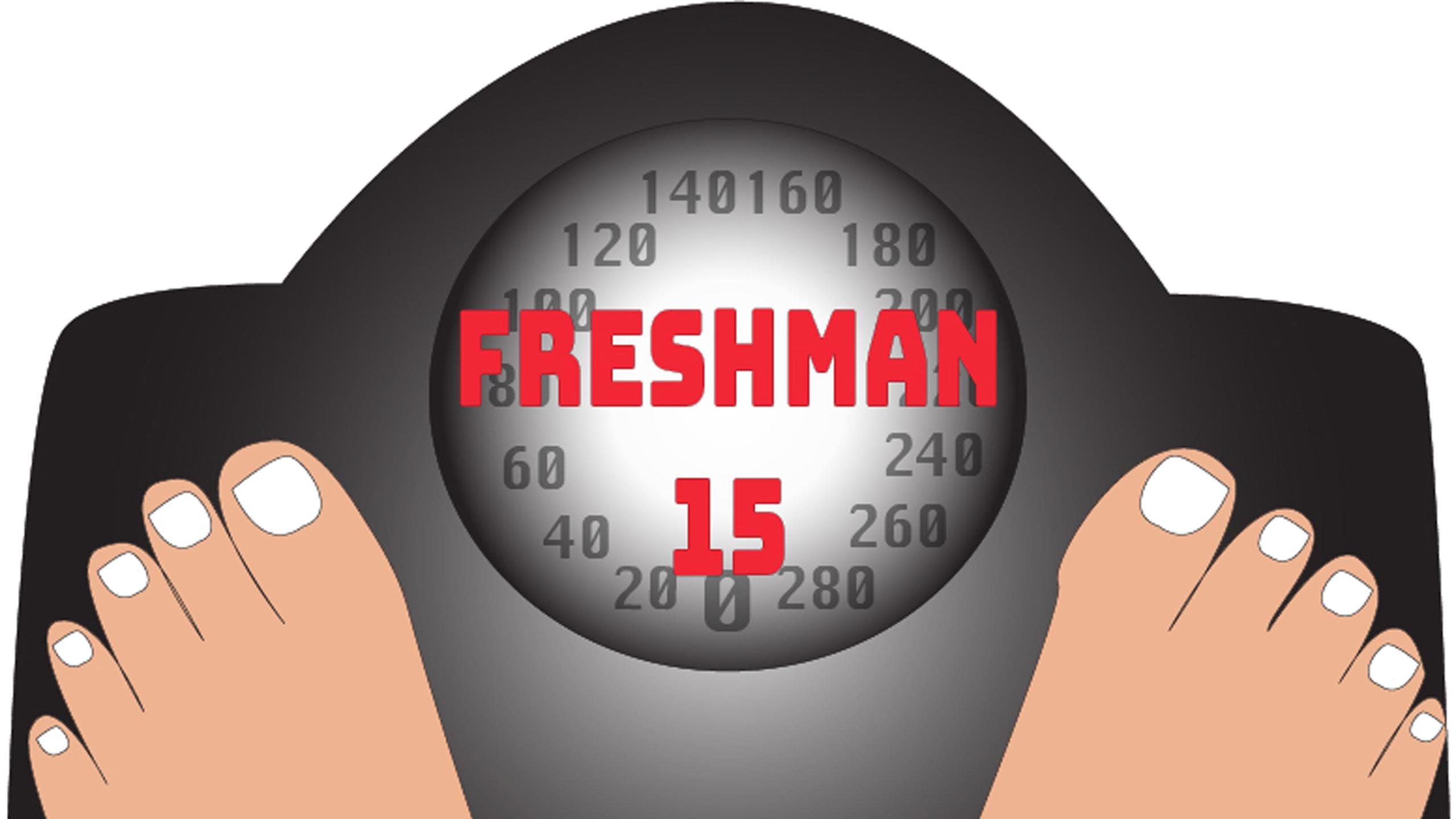By Maggie Macintosh
“The trick is to always wear jeans,” a high school friend told me, half-jokingly, when we got together on Thanksgiving weekend. The conversation took place in her walk-in closet in 2015, likely having come up due to our nerves about eating too much stuffing at our holiday family dinners. It was our first reunion since moving away to separate cities for university just one month earlier.
“If you always wear stretchy pants or skirts, you won’t realize you’re gaining weight,” my friend said. What she was referring to was a way to keep tabs on our waistlines so we could avoid the “Freshman 15”. As if uncomfortable denim would convince me that I didn’t need a third serving of pumpkin pie, or that I should always opt to order from the Pitman Hall cafeteria’s salad bar.
The Freshman 15 is a fairly self-explanatory expression: The transition to university makes first-year students especially prone to gaining weight. Whether or not students actually gain pounds—or lose some—it’s a saying that puts even more pressure on those already nervous about writing midterms and essays, meeting friends in lectures and during TTC delays.
Ayman Jaddaa, who’s currently in his fifth year at Ryerson University, often chose fast food—McDonald’s, Burger King and Popeyes—in his first year because it was cheap and convenient. He said he didn’t even know about the Freshman 15 expression until after he’d gained, what he calls, “the Freshman 30.” When the business technology management student stepped onto a scale a few weeks into his university experience he said, he felt “horrible.”
“Gaining some weight in first-year is bound to happen,” Jaddaa said. “If you commute or you live on campus, you’re spending a lot of time away from home and this period will just be an adjusting period.”
Yet the idea of gaining any weight made me stare at my naked stomach in my murky residence mirror, secretly do squats in my room and above all, feel overwhelming guilt every time I consumed anything other than spinach. I always noticed my floor mates going to the gym, sporting rosy cheeks as a sign of pride when they returned. Was there ever elevator small talk where the gym wasn’t mentioned? A Sunday morning when I didn’t overhear someone venting about feeling fat after a night of drinking and post-bar McDonald’s?
Vera, a third-year computer science student at Ryerson, who asked her last name not be published due to the sensitivity of the subject, said the thought of the Freshman 15 made her obsess over being a gym rat.
“I didn’t want to get in worse shape and gain weight, especially since I was a commuter…I’d be sitting so much during my day,” she said. Vera, who became fixated on going to the gym every single day, said staying in shape became a huge priority in first-year. It was something that motivated her.
“It made me feel pretty bad when I missed going to the gym for a day or wasn’t feeling up to working out… It definitely made me beat myself up way too much.”
The pressure to either maintain or lose weight in first-year made both myself and those around me, paranoid about gaining pounds. Only now, far from a freshman, as I enter my fourth-year, I realize the extent of useless fat-shaming there was towards myself, closest friends, my floor mates, strangers on campus and others others we noticed had gained a few pounds.
If only someone had told us that it was normal for one’s weight to fluctuate in first-year, in university, and in general. If only someone had said that yes, you should eat your greens and take care of yourself in the cafeteria, but to still put lots of energy towards moderation, mental health and adjusting to the university workload over the size of your jeans. Maybe then I wouldn’t have called my mom sobbing about the stresses of school and wanting to drop out once a week.
Although he was first overwhelmed by his weight gain, Jaddaa said he later realized dealing with issues like doing well in school, working and addressing his acne were priorities he needed to put first. He also said freshmen should learn to cook in residence or pack food from home so they avoid constantly consuming deep-fried carbs like he did.
Maintaining healthy habits that make you feel good when you’re dealing with other stresses is important, Vera said, looking back on her first year at Ryerson, adding, “Your body will thank you.”
Taking care of yourself in first-year doesn’t mean you have to follow a strict gym regimen or miss out on desert every night. It means allowing yourself some leeway on the scale while you focus on the stresses that accompany new studies. Pounds shouldn’t cause paranoia. That’s not to say any student should forget about eating healthy, but that there’s no problem with forgetting about the jeans in your closet.










Leave a Reply